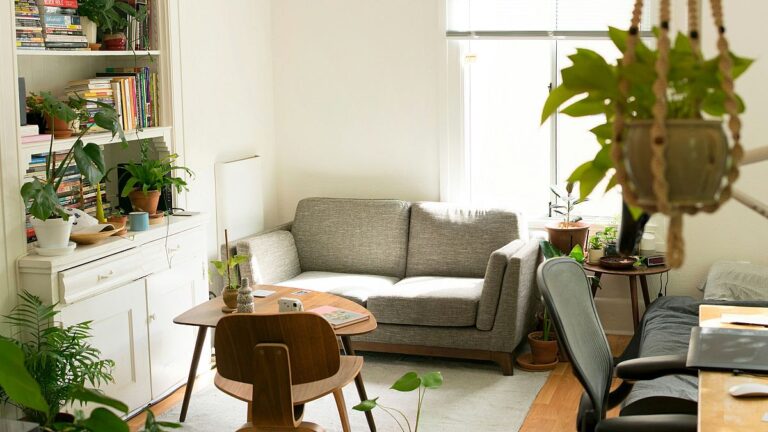Fast fashion has come into the spotlight in recent years as many consumers seek to avoid buying cheap, mass-produced clothing.
Now new markets are emerging that have negative impacts on the environment.
What recent reports have called fast decor is mass-produced, low-cost furniture and home décor.
Like clothing, they are cheap imitations of high fashion trends and are quickly replaced by the next fad.
Fast decor is just as bad for the environment as fast fashion
Recent report French environmental groups say FastDeco's environmental impact is growing.
Zero Waste France, Les Amies de la Terre and the National Resource Recycling Association say that environmental issues are Fast Fashion.
The authors have developed a fast deco and a fast fashion They share the same business model of large volume, low-priced products and fast collection updates.
Commercial holidays such as Valentine's Day and Mother's Day are used to launch new collections and encourage purchases.
Similar to fashion, they are leveraging social media by encouraging “unboxing” and “show me what you bought” videos.
This business model is utilized by chains such as Zara Home, H&M, and Shein.
“Clearly, large fast fashion, e-commerce and mass distribution companies, as well as clearance and e-commerce start-ups, are doing everything they can to reinforce this trend to maximise their profits, resulting in misery for consumers. planet” said Pauline Debrabandère, campaign coordinator for Zero Waste France.
COVID has caused a boom in fast decor
The coronavirus pandemic has led to a buying boom, with many people investing in home renovations.
According to a study published in the French economic newspaper Les Echos, between 2017 and 2022, furniture The number of items on the market in France increased by 88 percent.
Even today, 46% of home decor buyers replace their living room fixtures at least once a year.
With increased purchases comes an increase in the amount of waste: between 2014 and 2020, waste from furniture doubled in France.
Currently, environmental groups are investigating 1.3 million tons of furniture Waste. Almost half of it cannot be reused, repaired or recycled and ends up incinerators or landfills.
“In the face of a saturation of goods, the decoration industry has chosen to accelerate production rates to levels that are unsustainable for the planet, always with the same goal in mind: to generate desire out of superficial needs,” says Pierre Condamine, overproduction campaign manager at Friends of the Earth in France.
“We urgently need to regulate this sector to limit overconsumption of resources as we approach the limits of our planet.”
Environmental groups advocate for reuse and repair.
Environmental groups have criticized FastDeco as: Reuse And repairs.
RREUSE, a European network of social reuse enterprises, estimates that its members will have managed to save around one million tonnes of goods and materials from landfills in 2022.
This will reduce the equivalent of the annual CO2 emissions of over 108,000 European citizens.


